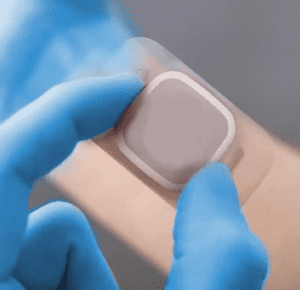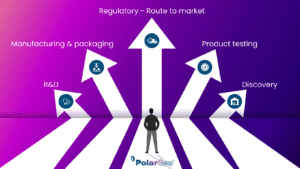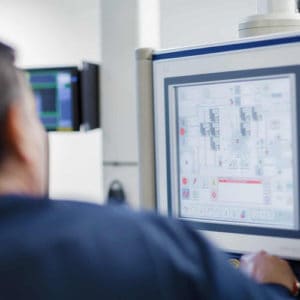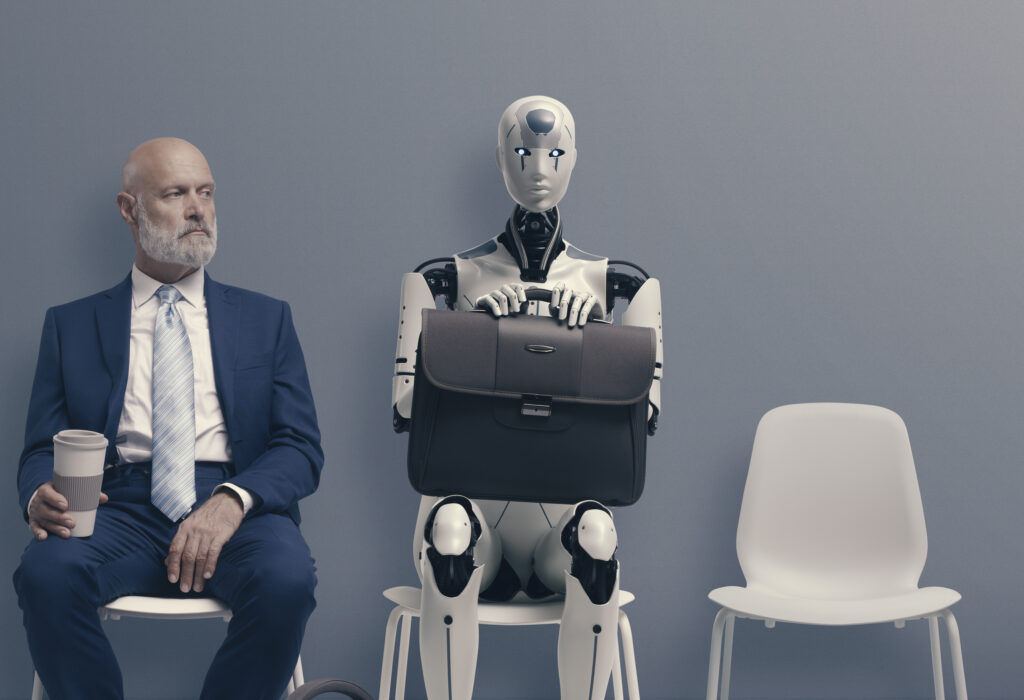Artificial Intelligence, commonly referred to as ‘AI’ is a rapidly growing technology advancement whereby technology, i.e. computers, machines and devices are programmed with the ability to perform cognitive functions that we would usually associate with human intelligence. The advancement of AI has been widely fictionized in TV and film, in programmes such as ‘Humans’ and ‘Westworld’ or movies like ‘I Robot’, generally speaking in such adaptations AI is depicted as a form of threat to civilisation where the ‘robot being’ is far more advanced than we humans anticipated, however, the reality is quite the contrary. AI is having a positive impact, advancing the world in many ways from AI generated blogs, graphics and photography to chatbots such as website live chats & Chat GPT, through to home security systems, self-driving cars, and many more. Already, millions of us use AI routinely in one form or another, take Amazon’s Alexa? and how many of us use the integrated chatbots on our mobiles phones, “Hey Google” or “Hey Siri” to answer quick fire questions, or perform activities on our behalf.
So what advances does Artificial Intelligence hold for the healthcare industry? Does AI have the potential to transform the healthcare as we know it? And if so, what does this evolutionary landscape look like? Improved patient outcomes, more efficient processes, and enhanced medical research are just a few of the benefits we are seeing.
We dive into some of the areas that AI could advance in healthcare:
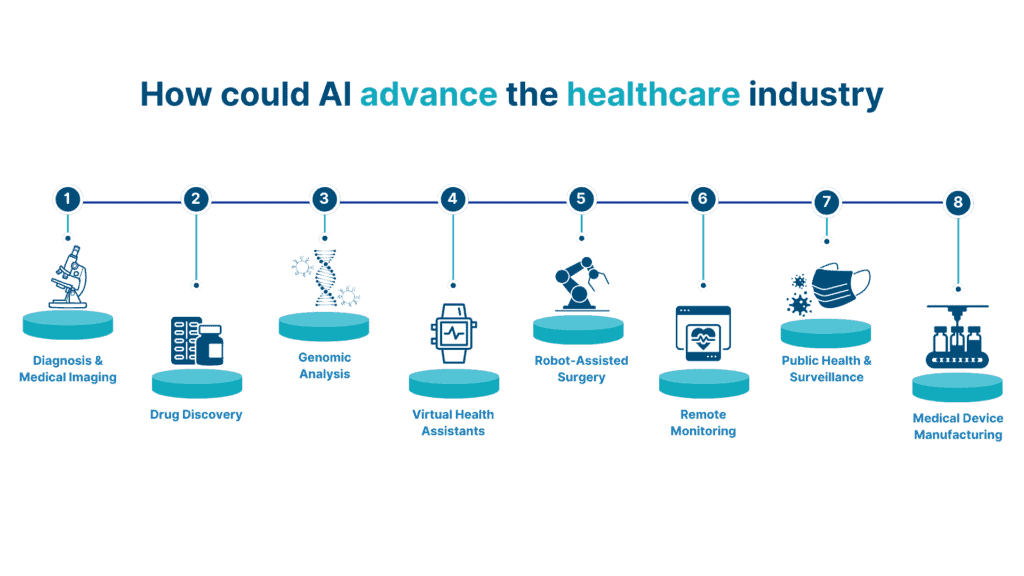
Diagnosis and Medical Imaging
AI algorithms have the potential to analyse medical images such as X-rays, MRIs, and CT scans enabling quick and accurate detection of diseases like cancer, cardiovascular conditions, and neurological disorders, AI also harnesses the potential to review sample data through pathology. This potentially helps radiologists, pathologists, doctors and other medical professionals make more accurate diagnoses and identify subtle abnormalities that might be missed by human eyes, the earlier the detection of these conditions the better the patient outcome, and by utilizing the capabilities of AI to detect these subtle abnormalities patient prognosis improves. Not only can the use of AI detect existing conditions and diseases, it also can analyse patient data to predict disease risks, potential complications, and prepare optimal treatment plans. For example, the BRCA gene mutation testing, designed to detect patients that carry a particular gene mutation in BRCA1/2 making them high risk patients for breast cancer, is extremely costly and time consuming and carried out by the trained eye by examining slide pathology. By utilizing AI for such identification processes and identifying these high-risk patients, healthcare providers can intervene earlier in much larger numbers with reduced time and costs and provide personalized care to prevent disease progression.

Drug Discovery
Currently it can take over 10 years to develop a new drug and bring it to market drug development costs circa $2.8billion and even then, nine out of ten therapeutic molecules fail Phase II clinical trials and regulatory approval [ref
], but does Artificial Intelligence have the potential to accelerate the drug discovery process? Many experts believe so, and there is excitement around the potential for AI’s advancement of the drug discovery process, we may be entering a time where drug therapies can be discovered, developed and treating patients in one-tenth of the time. By analysing vast amounts of biological data and identifying potential drug candidates AI enables the scientists to access enormous amounts of data in shorter periods of time and develop insights and understanding into the human body like never before. Simple tasks such as pipetting samples, cleaning and evaluating data can be automated, AI has the potential to predict drug structures and interactions, the bioavailability of drug combinations, toxicity and much more, furthermore AI can present hypothesis based on its data for scientists to evaluate and perfect. This reduction of time and costs developing new medications could be vastly improved. Once the drug development process is complete AI aids in the design of the clinical trials, from patient recruitment to data analysis. This accelerated research all works towards advancing the development of new treatments and bringing much needed drugs to the patient in the most efficient timescales.
Genomic Analysis
In the 22 years since the introduction of genome sequencing, the extensive generation of data has been invaluable to science and is behind a multitude of advances not only within healthcare and medicine but forensic science, environmental research, evolution and archaeology, and many more, however as we continue to gather more in depth data scientist need to be able to rely on machine learning and Artificial Intelligence to handle, extract and interpret the information discovered through our years of data gathering and research. AI will play a crucial role in analysis of this genomic data to understand the genetic basis of diseases, identifying hidden patterns in biomarkers, and develop targeted therapies, enabling more personalized and effective treatment approaches.
Virtual Health Assistants
Something we are already seeing readily available to the consumer, in the form of apps & wearable technology, this thriving trend can be utilised by medical professionals to provide their patients with AI-powered virtual assistants supporting patients with individual health-related information, reminders for medication and appointments, mental health support and practices and much more. These assistants can alleviate the burden on healthcare professionals and improve patient engagement, driving uptake and participation and improving quality of life for the patient. The use of Natural Language Processing (NLP) enables AI systems to extract insights from unstructured medical data such as electronic health records, clinical notes, and research papers, enhancing clinical decision-making and enabling researchers and healthcare providers to access valuable information more efficiently, and formulate the most effective treatment and management plan for their patient enabling the healthcare providers to deliver healthcare services virtually.
Robot-Assisted Surgery
AI and ML (Machine Learning) have the potential to enhance surgical procedures beyond that of human capacity, AI has the ability to absorb significantly higher amounts of information which paired with Machine Learning could prove to be a surgical tool unmatched by any other. Surgical robots equipped with AI enhance the precision and dexterity of surgeons, AI’s ability to absorb and compare unfathomable data to us mere mortals enables artificial intelligence to learn from thousands of surgeries across the globe with varying techniques and compile this into best techniques and practices, surgeons can perform AI guided procedures leading to better patient experiences, just a few of the advantages we may see are minimally invasive procedures, reduced recovery times, and improved surgical outcomes.
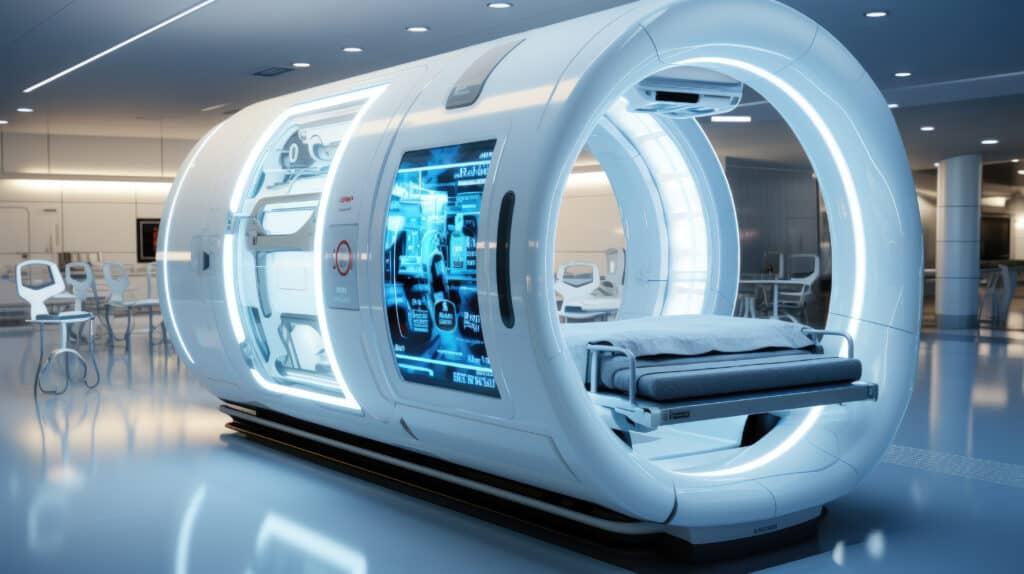
Remote Monitoring
An already advancing feature within the healthcare industry and something PolarSeal are very familiar with, AI-enabled wearable devices and remote monitoring systems. The features of such enable AI to collect and analyse patient data in real time, this trend is on the rise within the general public with fitness monitors and lifestyle wearables becoming standard practice, knowledge is power and with the increasing importance placed upon wellness, our health and mental wellbeing wearables are an integral part of the healthcare market. Harnessing AI proves to be particularly useful for managing chronic conditions and tracking patient progress without requiring frequent in-person visits, devices such as continuous glucose monitoring, sleep apnea monitors, biosensors & ECG monitors are constantly evolving and improving patient lifestyles.
Public Health Surveillance
As touched on above, we know that AI has the unmatched ability to analyse large sets of data, this technology is being utilised to detect potential disease outbreaks, monitor disease trends, and predict potential health threats. As we witnessed with the Covid-19 outbreak and the above predictions surrounding AI within Drug discovery the rapid development of the vaccines and treatments is aided by AI, however the ability to harness data in advance of such outbreaks enables scientists & public health agencies to respond and intervene before future outbreaks occur, for example the genomes of the influenza and SARS-CoV-2 viruses are already being sequenced to predict future vaccines and the integration of AI can advance these predictions further.
Medical Device Manufacturing
Innovation is at the forefront of medical device manufacturing, constantly striving for efficient and streamlined processes to reduce timescales and costs, whilst advancing quality and precision. The utilisation of Artificial Intelligence and Machine Learning within the medical manufacturing industry is fast approaching and medical device manufacturers are keen to implement tailor made AI technologies to provide solutions within the industry. AI has the potential to optimize workflows and automate quality control, by understanding their data better with AI, a manufacturer can innovate solutions and processes for efficient production.
What are the challenges?
Although the introduction of AI to the healthcare industry is widely anticipated, concerns remain, and the evolution won’t be without it’s challenges. AI relies heavily upon robust data, and to enable AI to maximise its performance accurate, high-quality data is integral. With data comes concerns around privacy and security, as AI systems requires access to large volumes of patient data, robust security measures are of the utmost importance. There are of course ethical considerations around the use of AI, as decision making is based solely upon data this may conflict with ethical considerations, While AI has the potential to improve healthcare access, it could also exacerbate existing health inequities if certain populations lack access to the necessary technology or resources to benefit from these advancements. We will face challenges around regulatory approvals, systems will need to undergo rigorous testing and approval, this can be time consuming and expensive which slows down innovation.
It is expected that to begin with confidence will be low and perceptions may be negative where AI based decisions are concerned and changing the behaviours associated with AI will take time. Healthcare professionals and patients may be hesitant to trust AI systems without clear evidence of their accuracy and effectiveness. Nevertheless, the integration of AI in healthcare holds the potential to revolutionise the industry and improve patient care on a global scale, addressing these concerns requires collaboration between healthcare professionals, AI developers, regulators, and ethicists. Striking a fine balance between innovation and patient safety is essential to harness AI’s potential for transforming healthcare positively.
Read More from PolarSeal
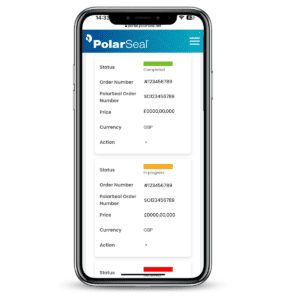
Customer Portal – Technical Update
PolarSeal is proud to announce the latest update release of our custom built portal, specifically built for our partners within the medical device industry. The

A Fantastic Day at Med-Tech Innovation 2023!
Med-tech innovation Expo 2023 A fantastic day had by all who attended the exhibit this week, the PolarSeal team were pleased to be able to

Wearable Technology Trends – 2022
Wearable medical technology – a growing market seeing large investment and consumer interest. For the past few years, wearable technology has been a market and


